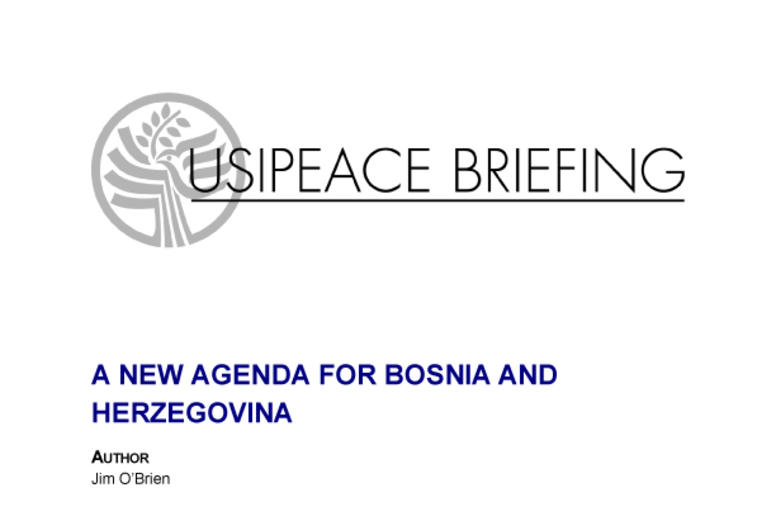Academy training in Macedonia emphasizes use of negotiation and diplomatic skills to prevent recurrence of inter-ethnic violence that might spill over into neighboring countries.
Macedonia has recently moved from being viewed as a post-conflict state to a state requiring only monitoring. The Organization for Security and Cooperation in Europe (OSCE) Spillover Monitor Mission to Skopje has shifted is focus and organization accordingly.
Mission members play an important role in supporting implementation of the 2001 Ohrid Agreement that ended inter-ethnic fighting in Macedonia. To prevent recurrence of that violence, the mission is now emphasizing negotiation and diplomacy.
In line with this new role, Ted Feifer, dean of students for USIP’s Academy for International Conflict Management and Peacebuilding, conducted a core negotiation and diplomatic skills workshop for the OSCE Spillover Monitor Mission in Skopje, November 22–24, 2010.
The workshop’s objectives were to strengthen mission staff skills in communication, negotiation, and third party skills in fostering inter-ethnic understanding and improving the quality of life in mixed communities and areas.
There were 13 participants in the workshop (11 international and 2 national staff); 9 participants came from the Police Development Department, and 4 from the Monitoring and Good Governance Department.
The workshop addressed styles people use in dealing with conflict; communication and conflict, including active listening; best practices in negotiation; the third party role; and analysis of a real world conflict situation and development of a mediation strategy to deal with it. The workshop concluded with a multiparty, multi-issue simulation.
One participant described the workshop as a “great opportunity to develop ourselves. . . . Definitely will offer benefits in our future development.” Others emphasized the relevance of the training to their professional needs, including one participant who noted that the workshop provided theory and technical skills building for dealing with his current work situations.
